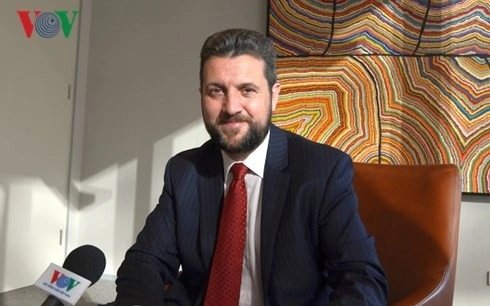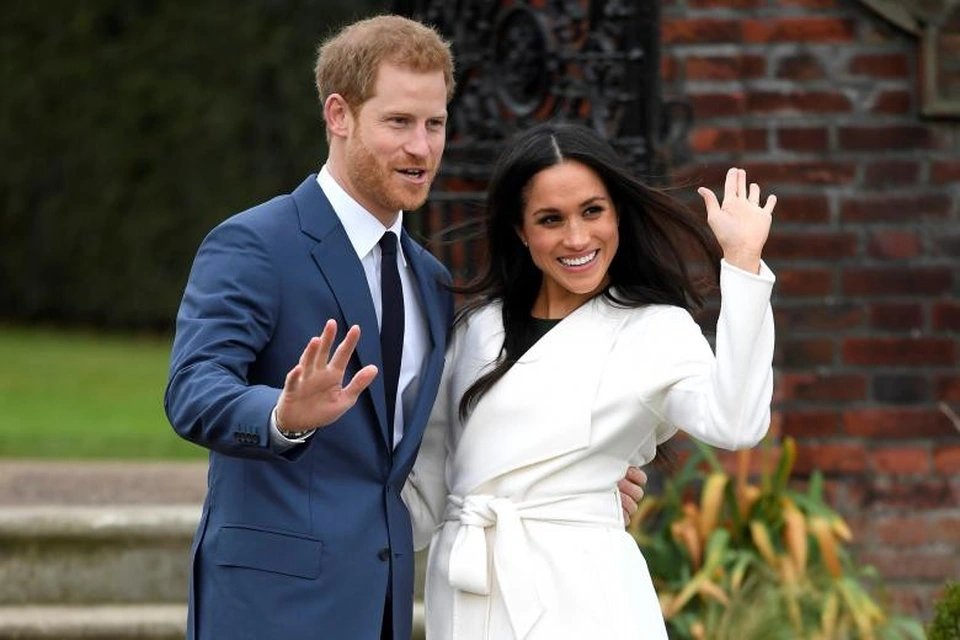We should not expect too much from the `Free and Open Indo-Pacific` strategy because the parties still have many differences.
Dr. Euan Graham, Director of the International Security Program, Lowy Research Institute, Australia, said that the four countries in the `Diamond Quadrilateral` – the US, Australia, Japan and India – agree on a common view on `freedom`.
Dr. Euan Graham, Director of the International Security Program, Lowy Research Institute, Australia.
Reporter: The `Free and Open Indo-Pacific` strategy was first mentioned by the Japanese Prime Minister and it attracted the attention of the international community when US President Donald Trump supported this idea in his
Recently, Japanese and US officials have also explained more clearly the `free and open Indo-Pacific` strategy.
Dr. Euan Graham: `Explaining the two keywords `free` and `open`, Australia supports an open economic area in which trade and investment are carried out freely without restriction.
Regarding the concept of freedom, here refers to freedom of access and movement, including military aircraft, ships, and freedom of navigation throughout Asian waters, according to the provisions of law.
I think that the concept of “freedom” is quite comprehensive because it is not only an organization built to balance power, but it also shares common concerns and values.
Therefore, for the US, Japan and Australia, the concept of `freedom and openness` is mainly related to trade and freedom of navigation in the region.
Reporter: How is Australia’s perspective different from other members?
Dr. Euan Graham: `I think the four countries agree on the importance of `freedom and openness`.
Of course, threat perceptions are not the same because geography and economic concerns and security concerns are all very different, depending on the location of each country.
Australia stretches south so there is no direct threat to Australian territory, but Australia shares a common interest in building an open global trading system.
Although Japan is not an ally of Australia, it is a close partner in trade, investment and now defense and security relationships.
So we need to have realistic expectations for what the “Diamond Quadrangle” can do.
Reporter: What makes Australia support the `Free and Open Indo-Pacific` strategy? What benefits does this strategy bring to Australia?
Dr. Euan Graham: “We are talking about the Indo-Pacific, a region formed by two large oceans, the Indian Ocean and the Pacific Ocean, an area where more than half of the world’s population lives and
This situation is likened to `a half-full glass of water`, which is very beneficial for Australia.
There are unresolved territorial disputes and ethnic issues, such as historical disputes such as those between China and Japan.
The important thing that countries like Australia can do is maintain the area as open and safe as possible, based on the arrangements that have been established since World War II.
This is a big challenge because the balance of power has changed, mainly because China has developed very rapidly and will continue to grow while China does not share the common goal of maintaining the status quo of power.
However, I think that if China looks at the past, if it wants to establish a regional order in which China is the dominant and dominant country, it will create huge challenges for other countries.
On the one hand, the US is the country that ensures Australia’s security through alliance relations, on the other hand, in the economic field, Australia is very closely linked to Asia and this is almost irreversible.
This reality forces Australia to build a harmonious foreign policy to both welcome economic cooperation opportunities with Asia while continuing to maintain the role of the US and finding ways to prevent it.
The Diplomatic White Paper that Australia published in 2017 talked about the free and open Pacific Ocean.
Australia’s Diplomatic White Paper predicts that China will become the world’s largest economy.
History has proven that power originates from economic strength.
We don’t know whether it will be challenged from a military perspective or from another perspective.
Reporter: Can you talk more clearly about the `free and open Indo-Pacific`, whether it will be about economics or security or will this be a strategic plan that includes many
Dr. Euan Graham: In Asia, it is very difficult to separate economics and security.
I think we have begun to see this when the four countries of the Diamond Quadrilateral have expressed interest in building infrastructure in the region, so they have worked together and cooperated with each other.
We all agree that a “free and open Indo-Pacific” is a good idea, but at this time the United States is not demonstrating the proactive economic leadership that it is today.
Read article 2: Is the East Sea included in the `Indo-Pacific` Strategy?
According to Viet Nga
VOV


